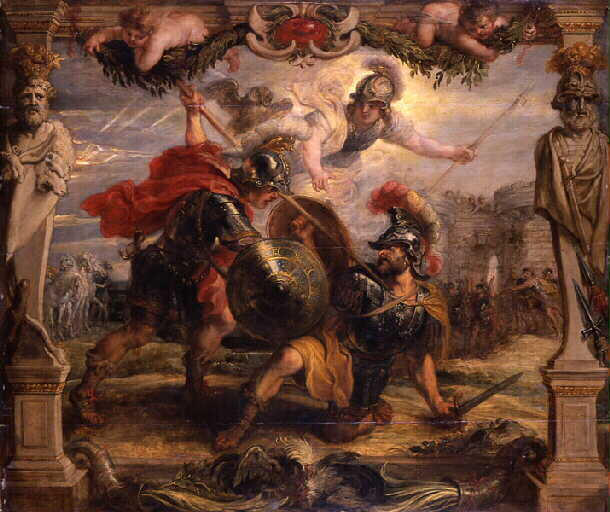
This continues my previous post, which was slightly misleadingly titled Why Christianity Spread So Rapidly . . .. It is for most part a distillation of Gregory J. Riley’s chapter, “Mimesis of Classical Ideals in the Second Christian Century”, found in Mimesis and Intertextuality edited by Dennis MacDonald. A related post is my discussion of Paul’s Christ crucified message and its relationship to Stoic philosophy, Why Paul did not need “the historical Jesus”. (Riley himself, however, is certainly not a Jesus-mythicist as far as I am aware.)
Riley is attempting to redress what he sees as an imbalance in the scholarship of early Christianity by pointing out that key Christian themes and messages originated in the Greco-Roman world, and were tacked on to Jewish heroes. Christianity’s attraction to many in the Roman Empire lay in the way it epitomized the best and noblest of Classical ideals as it narrated these through very “paganized” Jewish characters.
Anyone familiar with the New Testament who reads the classical literature of Greece and Rome cannot help but notice the many coincidences of thought and expressions. This was certainly my own experience. Questions inevitably begin to arise as one sees this so often the more one reads. It is refreshing and enlightening to see Riley address this question head on.
This part 2 post looks at “what made the Christian Gospel something familiar and alluring, even captivating, for the masses of people of the Roman world.” (p.99) I flesh out some of Riley’s notes with quotations from the classical sources themselves. Continue reading “Christianity won over paganism by epitomizing pagan ideals”
